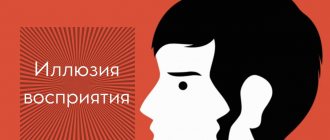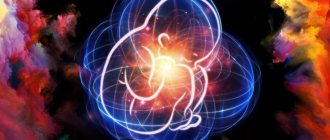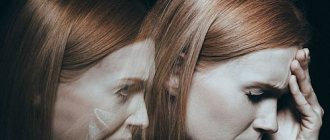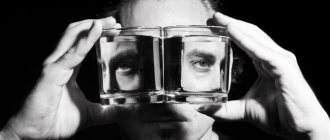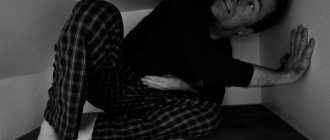Auditory hallucinations are a form of hallucination in which a person may hear different voices and sounds that are not actually there. This condition can occur for a variety of reasons, and it does not always indicate the presence of a mental illness. The reasons for their appearance may be other. But at the same time, this condition in any case requires the attention of specialists and treatment. Treatment for such hallucinations involves identifying the cause of their occurrence. In most cases, this requires treating the cause, not the effect.
Symptoms of auditory hallucinations
Despite the fact that auditory hallucinations can occur for a variety of reasons and have different manifestations, their symptoms are largely similar. This illness is that a person hears voices and sounds that are not really there. But at the same time, he can often sincerely believe in their reality and not understand that all this only seems to him. It is interesting that this phenomenon can sometimes occur not only with all kinds of diseases or painful conditions, but also in some conditions in completely healthy people.
Symptoms of auditory hallucinations include a variety of voices and sounds. It can be human voices, barking dogs, various creaks, rustles, rattles, the roar of a car or other engine, whistles, laughter, the sound of water and much more. At the same time, many people can hear completely understandable phrases or words. Some types of such hallucinations pose virtually no danger to both the patient himself and those around him, while others can cause serious harm to himself or jeopardize public safety.
Professional psychiatrists often divide such hallucinations into true and false. In the presence of true hallucinations, their manifestation seems quite realistic. Therefore, a person has no doubt that these voices and sounds actually exist. And with false hallucinations, the person with whom this phenomenon occurs also doubts the reality of this phenomenon.
Most of these voices and sounds are practically harmless to the patient himself and the people around him. This phenomenon can only complicate the patient’s life. In many cases, it contributes to the disruption of his work and social life, impairs sleep and interferes with the conduct of many usual activities.
And the most dangerous are hallucinations, which are usually called imperative. In this case, the voices that inhabit his head and seem very real may force him to kill someone or himself, steal something, or commit other dangerous or illegal actions. The patient may be forced to drive a car at high speed, jump from great heights, commit suicide, or engage in self-harm. At the same time, he is completely confident in the reality of such voices and phrases, and therefore often, without a shadow of a doubt, commits such dangerous and criminal actions against himself or other people. Such events must be properly distinguished from deliberate actions.
Causes of auditory hallucinations
The causes of auditory hallucinations can be very different. Despite the fact that most often they are a manifestation of various mental illnesses, this phenomenon is also inherent in poisoning with all kinds of psychoactive substances. In addition, hallucinations may indicate other diseases and conditions that are not mental. There are also cases when they appeared in healthy people under certain conditions.
In the modern world, a very common cause of such hallucinations is poisoning of the body with psychotropic substances such as alcohol and various types of drugs. However, such people are not always recognized as drug addicts or alcoholics. In addition, the phenomenon can also occur during ordinary household poisoning with various poisons, food products of poor quality, household chemicals, all kinds of gases, etc.
Hallucinations are common in people with mental illness. Voices and sounds can be heard by patients with schizophrenia, Alzheimer's disease, senile dementia and similar diseases. Similar phenomena can occur with traumatic brain injuries, brain tumors, and certain types of infectious diseases that affect brain activity. In addition, they can result from a strong increase in body temperature and some other painful conditions.
In addition, sometimes completely healthy people can hear various voices that do not really exist. This sometimes happens during severe fatigue, when a person has not slept for several days in a row, and in some individuals, upon awakening, when it is difficult to draw the line between reality and sleep. Sometimes people can react in this way to the death or serious illness of loved ones, violence or other serious psychological shock. Auditory hallucinations can occur in people of all ages, from young children to the elderly.
Diseases accompanied by hallucinations
First of all, of course, it is worth noting that the presence of hallucinations is one of the main positive signs of schizophrenia. The most common in schizophrenia are auditory hallucinations (they occur in approximately 75% of patients). This disease is also characterized by hallucinations of sensations (tactile, olfactory, auditory). Olfactory hallucinations also appear in temporal lobe epilepsy.
Visual hallucinations also occur in schizophrenia, although relatively rarely. D. Goodwin et al. (1971) believed that the percentage of patients with schizophrenia suffering from such a disorder is only 5%. In most cases, these hallucinations are symptoms of organic brain damage, delirious confusion, alcoholic or intoxication psychosis.
If we once again analyze the causes of hallucinations mentioned above, we can conclude that this disorder may indicate brain damage, tumors, various dysfunctions of the central nervous system, and intoxication of the body (typical of alcoholism and drug addiction).
Types of auditory hallucinations
Such hallucinations can be very different. At the same time, they are divided into true and false. The patient can clearly hear different words and phrases, as well as human voices and sounds of wildlife, car sirens, barking dogs, ringing bells and many other sounds.
Professional psychiatrists identify the following types of auditory hallucinations:
- Tinnitus is all kinds of noises like whistling, grinding, crackling, and the like;
- Acoasms are sounds that differ in specificity. These may include dripping water, the sound of the surf, wind, the sound of rain, barking dogs, the noise of cars, the howl of a siren, the ringing of bells and sounds close to them;
- Phonemes - this type of auditory hallucination is often considered the most dangerous. After all, when it appears, the patient can clearly hear certain words and phrases, sometimes spoken by a specific and very real person. In many cases, such illusions can be very dangerous for the one who hears them or for the people around him.
Auditory hallucinations in adolescents
Auditory hallucinations are quite common in adolescents. In many cases, they are caused by all sorts of psychological problems in relationships with parents and peers, difficulties in growing up and puberty, and can also be the result of violence or severe shock.
In addition, traumatic brain injuries are common in adolescence, which can also lead to auditory illusions. They can also be the result of infectious diseases or occur at high temperatures.
Modern schoolchildren, often under the influence of older friends, actively experiment with alcohol or drugs. Often their overdose leads to the formation of various types of hallucinations, including auditory ones.
Also, this phenomenon in a teenager can be a consequence of mental illness.
Auditory hallucinations in children
Auditory hallucinations in children of preschool and primary school age are a very common phenomenon. At this age, they are often caused by fever, various infectious diseases and traumatic brain injuries. But they can also appear due to violence, serious psychological shock as a result of any events they have seen or experienced that are terrible for them. Poisoning with various poisons and toxic substances can also cause a similar phenomenon. In addition, such hallucinations sometimes indicate the presence of a mental illness. But sometimes similar illusions arise in healthy children due to severe fatigue.
Treatment methods
Treatment methods for pathology depend on the causes that caused it. There is no single scheme. For example, in case of poisoning with toxic substances, you need to stop their effect on the body. If there are neurological causes, it is necessary to begin appropriate therapy or stop the acute form of the disease.
Treatment is usually carried out with:
- Neuroleptics.
- Antidepressants.
- Means to improve blood circulation in the brain.
- Antiparkinsonian drugs.
Auditory hallucinations after alcohol binge
After an alcoholic binge, all kinds of hallucinations often appear, including auditory ones. Moreover, they are often very dangerous and can lead to very unpleasant or terrible consequences. Indeed, in such a state, the alcoholic experiences various fears, cannot sleep normally and react to the surrounding reality. This phenomenon is caused by exhaustion of the body by prolonged consumption of large quantities of alcoholic beverages, often low-quality or surrogate ones. Many alcoholics in this state may hear distinct voices that tell them to cause significant harm to their own health or commit some other illegal or dangerous act. Therefore, often after a few days after drinking, many drinkers commit suicide, murder, or become guilty of serious road accidents.
How to treat auditory hallucinations
If signs of this phenomenon occur, you should not self-medicate, as it can pose a serious and even fatal danger to the body. Also, you should not hope that hallucinations will go away on their own without medical intervention. Therefore, a person who observes such symptoms in himself or his loved ones should not think about how to treat auditory hallucinations, but should consult a doctor as soon as possible. At the same time, it is not at all necessary that this problem will be treated by a psychiatrist, whom many people are very afraid to contact. After all, such auditory phenomena often occur in diseases or conditions not related to psychiatry. And the very appeal to a psychiatrist does not mean at all that such a person will be declared incompetent and will soon become an outcast from society. Modern psychiatry is very far from what it was in the twentieth century. Now many diseases that were previously considered incurable or socially dangerous are quite amenable to drug therapy.
Contact the specialists
If you are interested in treatment for addiction to spice or psychoactive substances of other types and brands, please contact the Center for Healthy Youth. It employs qualified doctors who specialize in helping patients suffering from hallucinations, phobias and other mental disorders. They effectively fight paranoia, hysterics, neuroses and do everything possible to restore human health. Don't waste time! After all, serious mental disorders can be irreversible. And only professional treatment can give an addict a chance for a happy and healthy life in the real world.
How to get rid of auditory hallucinations
In addition, often the answer to the question: “How to get rid of auditory hallucinations?” The psychologist also knows. Contacting him will be advisable if this problem is caused by violence, psychological trauma, severe fear or puberty in adolescents.
If such hallucinations are suspected in children, parents should be able to distinguish this problem from the manifestation of a child’s violent imagination or the child’s retelling of his dreams. And parents of teenagers, if they have sound or other hallucinations, should exclude the abuse of alcohol, drugs and other psychoactive or toxic substances.
When urgent medical attention is required
It is important to pay attention to the following symptoms:
- heat;
- weakness and drowsiness, lethargy unusual for a child;
- refusal to eat and drink, vomiting and diarrhea;
- severe pallor of the skin, especially with a cyanotic tint.
The listed signs are a strict indication to call an ambulance or an intensive care team. In addition, you should take your child to the hospital as soon as possible if hallucinations appear after:
- accidental/intentional intake of any medications;
- alcohol/drug use;
- consumption of mushrooms and plants (some have a strong hallucinogenic effect and are deadly at an early age).
You don't know what to do and how to help your child? Call us at 8(969)060-93-93 and make an appointment or call a doctor at home. An initial free online consultation is also possible.




